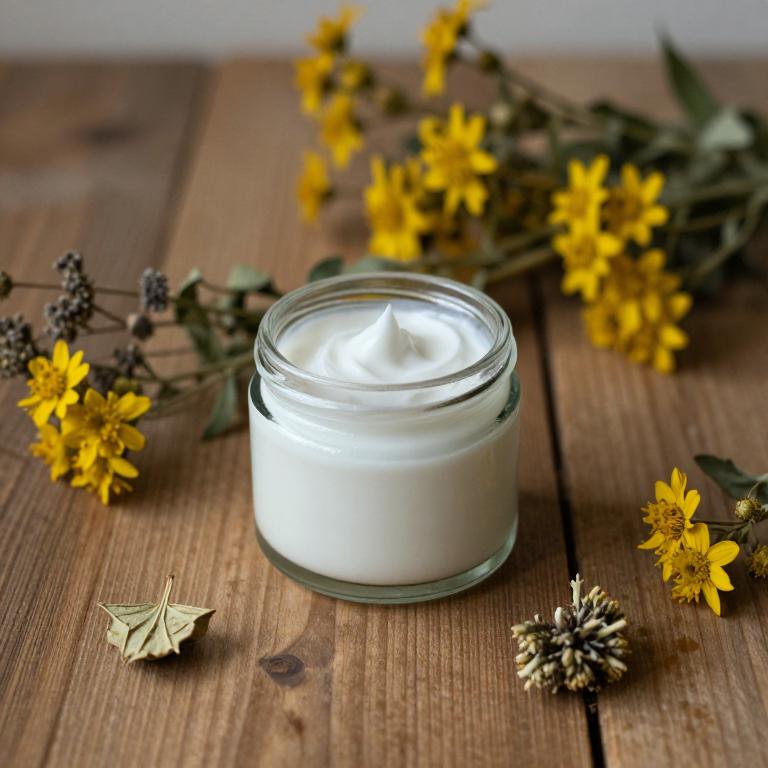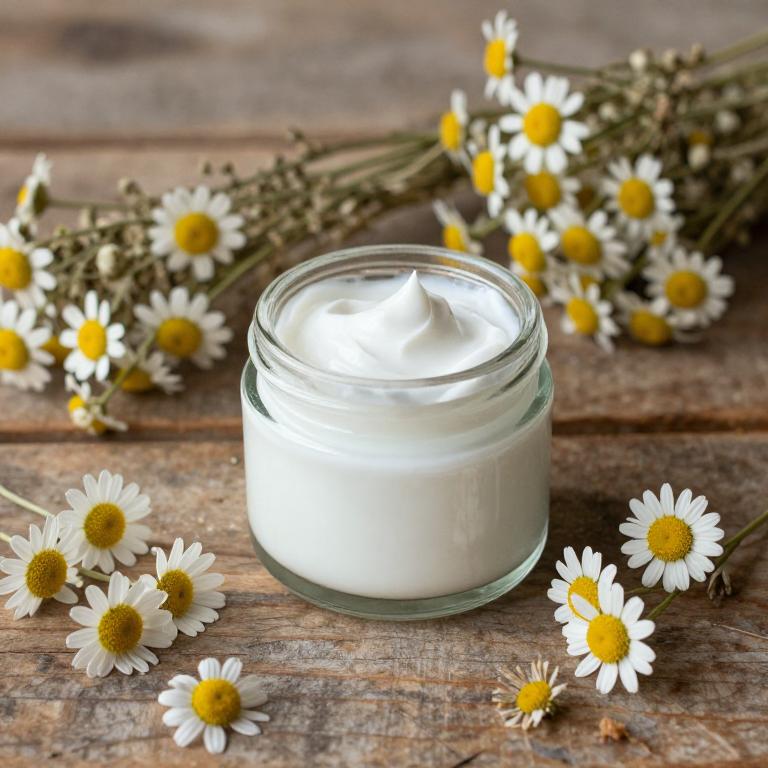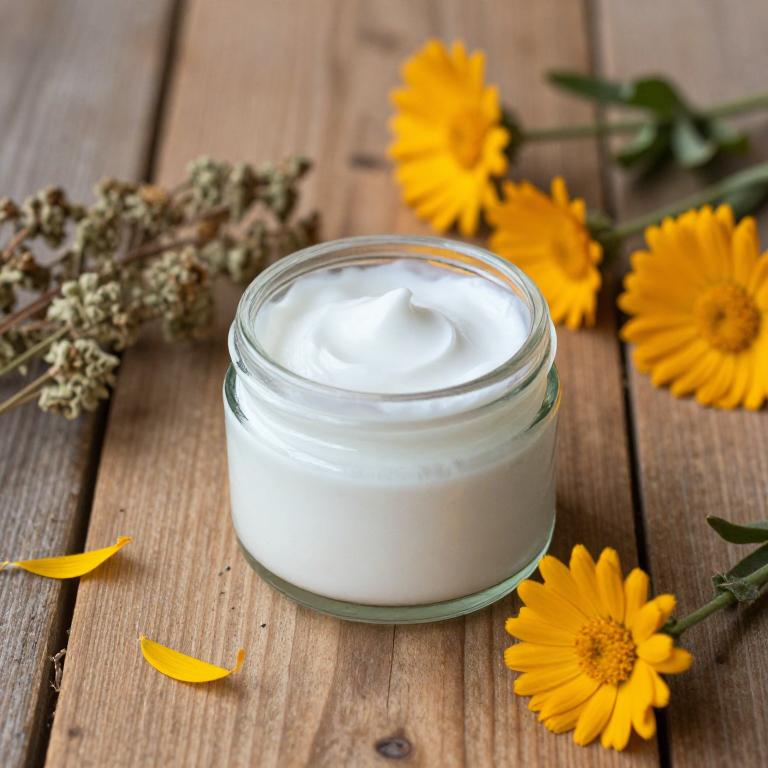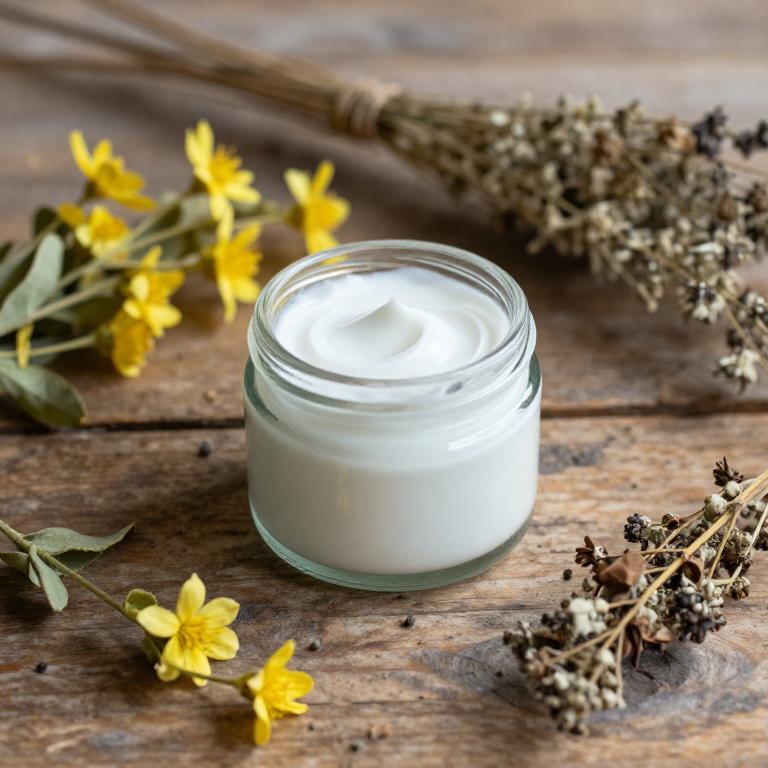10 Best Herbal Creams For Bruises

Herbal creams for bruises are natural topical treatments that often contain ingredients like arnica, calendula, and ginger, which are known for their anti-inflammatory and pain-relieving properties.
These creams are typically used to reduce swelling, bruising, and discomfort associated with injuries or bumps. They are popular among individuals seeking alternative or complementary therapies to conventional pain relievers. Many herbal creams are formulated to be gentle on the skin and suitable for daily use, making them a preferred choice for those with sensitive skin or who prefer natural remedies.
However, it is important to consult a healthcare professional before using these products, especially if you have allergies or are taking other medications.
Table of Contents
- 1. Dog rose (Rosa canina)
- 2. St. john's wort (Hypericum perforatum)
- 3. Mountain arnica (Arnica montana)
- 4. Yarrow (Achillea millefolium)
- 5. Stinging nettle (Urtica dioica)
- 6. Echinacea (Echinacea purpurea)
- 7. Chamomile (Matricaria chamomilla)
- 8. Marigold (Calendula officinalis)
- 9. Salvia (Salvia officinalis)
- 10. Common mallow (Symphytum officinale)
1. Dog rose (Rosa canina)

Rosa canina, also known as dog rose, is a traditional herbal remedy commonly used in the formulation of herbal creams for bruises.
These creams typically contain Rosa canina oil or extract, which is rich in antioxidants, vitamins, and essential fatty acids that help promote skin healing and reduce inflammation. The anti-inflammatory and regenerative properties of Rosa canina make it effective in alleviating pain and swelling associated with bruises. When applied topically, these creams can enhance circulation and support the body's natural recovery process.
Due to their natural composition, Rosa canina herbal creams are often preferred by individuals seeking gentle, non-chemical alternatives for bruise treatment.
2. St. john's wort (Hypericum perforatum)

Hypericum perforatum, commonly known as St. John's Wort, is often used in herbal creams to help alleviate the symptoms of bruises.
These creams typically contain extracts of the plant, which are believed to have anti-inflammatory and analgesic properties that can reduce pain and swelling associated with bruising. When applied topically, the active compounds in the cream may promote healing by improving circulation and reducing the appearance of discoloration. However, it is important to note that while some studies suggest potential benefits, more research is needed to fully understand its efficacy for bruises.
As with any herbal remedy, it is advisable to consult a healthcare professional before use, especially if you are on medication or have known allergies.
3. Mountain arnica (Arnica montana)

Arnica montana herbal creams are commonly used to alleviate the pain and swelling associated with bruises by promoting circulation and reducing inflammation.
These topical treatments contain extracts from the Arnica montana plant, which is known for its anti-inflammatory and analgesic properties. They are often recommended for minor injuries such as sprains, contusions, and muscle strains, as they can help speed up the healing process. However, it is important to note that arnica should not be used on open wounds or broken skin, as it may cause irritation.
Always consult with a healthcare professional before using arnica-based products, especially if you have sensitive skin or are pregnant.
4. Yarrow (Achillea millefolium)

Achillea millefolium, commonly known as yarrow, is a traditional herbal plant often used in the formulation of natural creams for bruises.
These creams typically combine yarrow extract with other soothing ingredients like calendula, chamomile, and essential oils to promote healing and reduce inflammation. The anti-inflammatory and astringent properties of yarrow help to minimize swelling and bruising by improving circulation and strengthening blood vessels. When applied topically, these creams can accelerate the body's natural recovery process and provide a calming effect on the skin.
As a result, achillea millefolium herbal creams are a popular choice for those seeking a gentle, plant-based remedy for minor bruises and injuries.
5. Stinging nettle (Urtica dioica)

Urtica dioica, commonly known as stinging nettle, is often used in herbal creams to help alleviate the symptoms of bruises.
These creams typically contain extracts from the leaves and roots of the plant, which are believed to have anti-inflammatory and astringent properties. The active compounds in stinging nettle, such as flavonoids and minerals like iron and silica, may support the body's natural healing process by reducing swelling and promoting tissue repair. When applied topically, these creams can provide relief from pain and bruising by improving circulation and reducing oxidative stress.
However, it is important to consult with a healthcare professional before using stinging nettle creams, especially for individuals with allergies or sensitive skin.
6. Echinacea (Echinacea purpurea)

Echinacea purpurea, commonly known as purple coneflower, is a popular herbal remedy often used in the form of creams for its potential anti-inflammatory and healing properties.
These creams are typically formulated with echinacea extracts combined with other soothing ingredients like aloe vera or calendula to enhance their effectiveness. Proponents of echinacea-based creams suggest they may help reduce bruising by promoting circulation and reducing swelling. However, while some studies hint at possible benefits, more research is needed to confirm their efficacy for treating bruises.
As with any herbal product, it is advisable to consult a healthcare professional before use, especially for individuals with sensitive skin or existing medical conditions.
7. Chamomile (Matricaria chamomilla)

Matricaria chamomilla, commonly known as chamomile, is a popular herbal ingredient used in the formulation of creams designed to alleviate the symptoms of bruises.
These creams typically contain chamomile extract, which is known for its anti-inflammatory and soothing properties. When applied to the skin, the cream helps reduce swelling, redness, and discomfort associated with bruises by promoting tissue repair and improving circulation. The natural compounds in chamomile, such as bisabolol and azulene, contribute to its effectiveness in calming the skin and accelerating healing.
Overall, chamomile-based creams offer a gentle, natural alternative for those seeking relief from bruising without the use of harsh chemicals.
8. Marigold (Calendula officinalis)

Calendula officinalis, commonly known as pot marigold, is often used in herbal creams to aid in the healing of bruises due to its anti-inflammatory and antiseptic properties.
These creams typically contain calendula extract, which helps reduce swelling and redness associated with bruised tissues. The active compounds in calendula, such as flavonoids and triterpenes, promote skin regeneration and may accelerate the recovery process. When applied topically, calendula-based creams can soothe pain and discomfort while protecting the skin from infection.
As a natural remedy, calendula officinalis herbal creams are a gentle and effective option for those seeking alternative treatments for minor bruises.
9. Salvia (Salvia officinalis)

Salvia officinalis, commonly known as sage, is often used in herbal creams to aid in the healing of bruises due to its anti-inflammatory and astringent properties.
These creams typically contain extracts of the plant, which may help reduce swelling and promote tissue repair. The essential oils in sage are believed to improve circulation, which can accelerate the fading of bruises. Many people use these natural remedies as a gentle alternative to conventional treatments for minor injuries.
However, it is important to consult with a healthcare professional before using sage-based products, especially for more severe bruises or if you have known allergies to the plant.
10. Common mallow (Symphytum officinale)

Symphytum officinale, commonly known as comfrey, is a traditional herbal remedy often used in the formulation of creams for bruises.
These creams are believed to promote the healing of soft tissues and reduce inflammation due to the presence of allantoin and mucilage, which can soothe and protect damaged skin. While some studies suggest that comfrey may help in accelerating the recovery of bruised areas, there are concerns about its potential toxicity, particularly with prolonged use. Therefore, it is recommended to use comfrey-containing creams under the guidance of a healthcare professional.
Despite these precautions, many people find relief from bruising symptoms when using these herbal creams as part of a holistic approach to injury care.